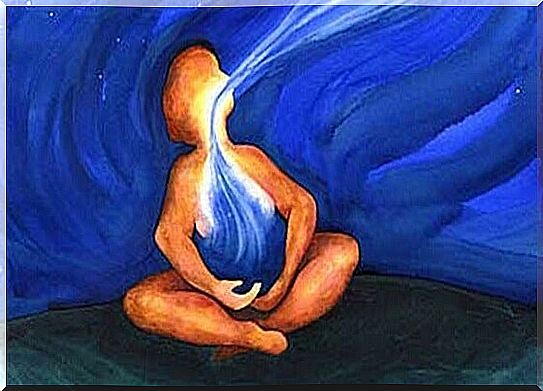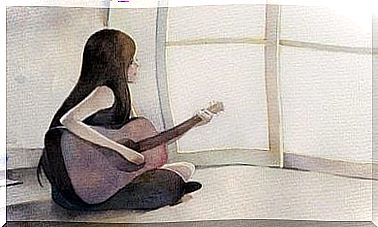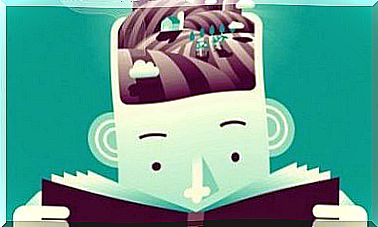How Do Emotions Affect The Back?

Plato said that the body is the prison of the soul. Indeed, rather than being our ally, he is sometimes the messenger of something that hurts, of something that does not go well. So, if you’ve ever wondered how emotions affect your back, the answer couldn’t be clearer. They generate contractures, tension and pain that drugs do not always relieve.
Back pain is, along with headaches, one of the most common conditions in the population. We estimate that one in ten people suffer from it frequently and that it is also one of the main causes of sick leave. This condition usually has many causes: poor occupational ergonomics, hernias, kidney problems, osteoporosis, arthritis, degeneration of the discs, etc. There is, however, one aspect that is often overlooked.
We are obviously talking about the relationship between body and mind. Particularly emotions and their impact on this complex but fantastic combination of bones, ligaments, tendons, muscles, intervertebral spaces, joints and nerves . Factors such as stress or anxiety generate small changes in these structures. These changes gradually lead to inflammation, coordination problems, and painful episodes that affect our quality of life.
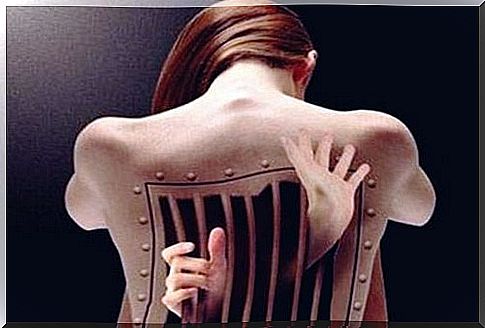
How do emotions affect the back?
The way emotions affect the back is as varied as it is amazing. Some experts point out that the spine supports not only our physical but also emotional burdens . The back is like the pillar of our existence. We are not speaking here in spiritual or transcendent terms. It suffices to remember its structural function. In other words, protect and cover our delicate nervous system.
Feeling low back pain, suffering from a contracture or chronic pain paralyzes the functionality itself. It forces us to stop. Pain is like that loyal dog outside our house barking when danger arises. Silencing it with medication will be useless if we don’t know the cause, if we don’t understand what threatens the “pillar of our body”, the balance of our physical existence.
Sadness, worry and stress and their relation to the back
As surprising as it may sound, back pain is one of the most common physical symptoms in patients with depression or generalized anxiety. It is therefore common for people to make a whole journey between physiotherapists and spine specialists without being relieved, without finding a cure for this recurring back pain. This until they finally receive the correct diagnosis from a psychologist or other mental health professional.
We must not forget that pain is above all a neurological experience transmitted by our nervous system. So there is a chemical imbalance in our brain when faced with states characterized by anxiety, fear, disappointment or discouragement. An irregularity between serotonin and norepinephrine generates, for example, an increase in the perception of pain.
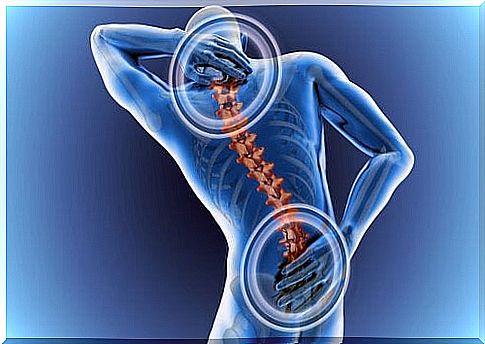
These states characterized by stress or anxiety further result in a higher level of cortisol in the blood. This hormone increases blood flow. It increases muscle tension and facilitates the onset of certain autoimmune processes that can attack joints, promote inflammation of nerves, and even reduce calcium in our bones.
Emotional pain and back pain
Swimming, anti-inflammatories, muscle relaxers… None of these approaches work when the person with back pain is actually suffering from emotional pain. An article in the journal Psychology Today explains that emotional suffering is a sign that a part of our being is broken, fragmented. This invisible lesion is usually somatized in the form of back pain, headaches, digestive problems …
Duke University Medical Center, for example, is an expert in treating these types of conditions. Dr. Benson Hoffman says that nearly 80% of individuals will experience back pain at some time given. This is the most common condition. It would demonstrate how emotions affect the back, and in particular how the emotional distress associated with sadness or disappointment is located in this region of our body.
The subject is undoubtedly as fascinating as it is revealing.
How to prevent and treat back pain associated with our emotions?
Let’s take a look at an image for a moment. Imagine yourself with a quiver on your back, a quiver filled with arrows prepared to destroy pain, to cope better with it, and to defend ourselves from what may adhere to us to turn into suffering.
- One way to get a well-equipped quiver is biofeedback therapy. It is a practice where the patient learns to improve their health by becoming more aware of aspects such as blood pressure, heart rate or muscle tension. Essentially, it involves training the brain to work in our favor, to become aware of processes that we did not previously consider.
- The cognitive behavioral therapy is another way to control our, manage emotions and achieve more appropriate behaviors and more beneficial to ourselves.
- It is more than obvious how emotions affect the back. So we shouldn’t give up trying different techniques to find the one that best suits our characteristics. The American Chronic Pain Association recommend increasing foods rich in vitamin B in our diet. To use so-called diversionary techniques as well. It’s about training us in guided images, aromas and even music, to learn how to deflect pain.

We now know how emotions affect the back. We know that the mind has a direct connection with our body and that the brain orchestrates this sometimes ruthless control where any worry, anger or unresolved problem will make our backs its special torture chamber. Let’s learn to prevent, to take care of our emotions as well as our own food and to never forget the “movement”. A moving body and a mind that knows how to ventilate from time to time are also essential for our health.
